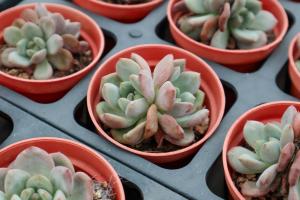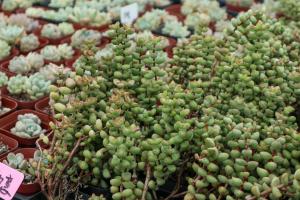Introduction
Blueberries are a popular fruit that are known for their sweet taste and numerous health benefits. Growing blueberry plants in pots is ideal for those who live in apartments, have limited outdoor space, or want to grow them indoors. To ensure that your blueberry plants thrive in containers, it is crucial to know what kinds of nutrients they need to grow.
Understanding Blueberry Plant Nutrition needs
Blueberry plants are acid-loving plants that require a significant amount of nitrogen, phosphorus, potassium, iron, and other trace elements. These nutrients are necessary for the plant to grow healthy and produce high-quality fruit. However, the amount and frequency of feeding blueberry plants depend on various factors such as the plant's age, pot size, and weather conditions.
Fertilization Schedule for Blueberry Plants in Pots
When growing blueberries in pots, it is best to fertilize them frequently and in small amounts to promote their growth and ensure they get the necessary nutrients. Start by fertilizing your plants with an acid-based fertilizer in early spring, just before new growth begins. Repeat this every 4-6 weeks until the end of summer. Once the plants become dormant in the fall, stop fertilizing.
Soil pH and Amendments
Aside from fertilization, it is crucial to understand the pH of the soil in which the blueberry plant grows. Blueberry plants thrive in acid soils with a pH level between 4.5 and 5.5. If the potting soil in your container has a higher pH level, adding sulfur can help lower the pH over time. In some cases, adding water that has a naturally low pH can help as well. Using peat moss, pine needles or sawdust as a top dressing helps keep the soil acidic and moisture retained.
Organic Feeding Alternatives
For those who prefer organic methods of growing plants, there are various organic fertilizers that can be used to feed blueberry plants in pots. Organic compost, animal manure, fish emulsion, and bone meal can provide the necessary nutrients to promote healthy plant growth. You may also opt for special organic fertilizers formulated specifically for blueberry plants.
Conclusion
Feeding blueberry plants in pots is essential to ensure strong growth and bountiful fruit production. The correct fertilization schedule, the right pH soil requirements and organic alternatives can all be used to help your blueberry plants thrive in the pots. With the right care and feeding, you are sure to enjoy a bountiful harvest of delicious, nutritious blueberries!

 how many times do yo...
how many times do yo... how many planted tre...
how many planted tre... how many pine trees ...
how many pine trees ... how many pecan trees...
how many pecan trees... how many plants comp...
how many plants comp... how many plants can ...
how many plants can ... how many plants and ...
how many plants and ... how many pepper plan...
how many pepper plan...
































